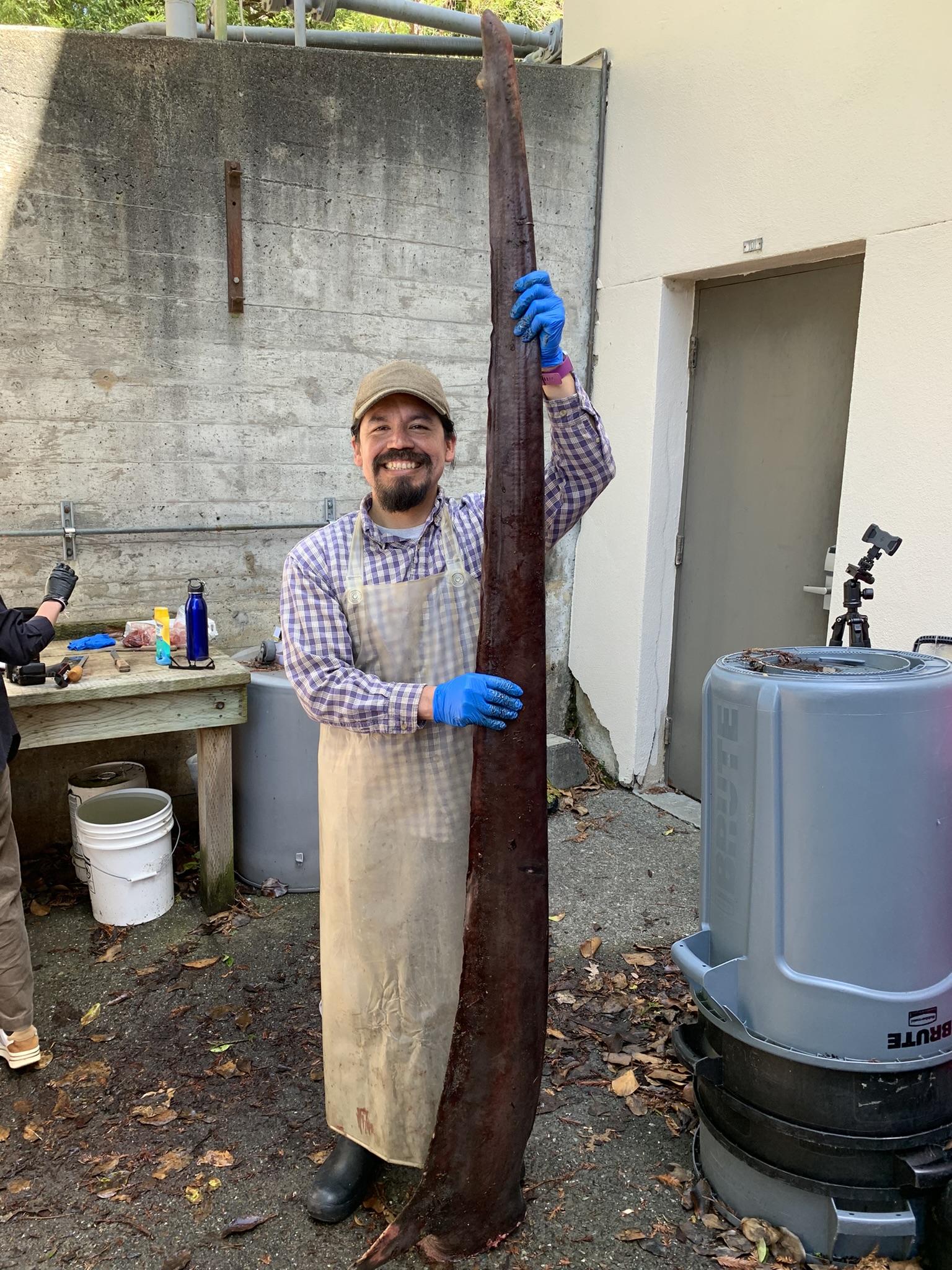
Abstract:
Cal Poly Humboldt has a culturally diverse student body that has led its faculty and staff to pursue the creation of a culturally sustaining environment. In order to achieve this goal, Humboldt first partnered with ESCALA, a professional development organization, to transform our instructional culture to benefit Latinx and Hispanic students, and then, developed an internal program called Creando Conciencia (Create Awareness, in Spanish) to continue this effort. Besides these university-wide efforts, in our lab we have partnered with tribal nations, and city, state and federal institutions in order to provide our diverse students with the best learning environment possible. In this presentation, I will discuss two projects describing the status of Night Smelt and Redtail Surfperch in sandy beach surf zones in Humboldt and Del Norte counties, that our students are currently carrying out. These two fish species are of cultural, commercial and ecological importance, who despite inhabiting the same habitat appear to be experiencing opposite population trends. Finally, I will briefly introduce a new program funded by a University of California Office of the President California Climate Action Seed grant that will allow us to expand our collaborations to five coastal tribal nations and will provide capacity building and priority species research in marine and estuarine habitats.
Bio:
I am originally from Guayaquil, Ecuador where I obtained a B.Sc. in Biology at the University of Guayaquil. Thanks to a Fulbright Scholarship, I moved to Charleston, Oregon to pursue a M.Sc. in Marine Biology at the University of Oregon’s Oregon Institute of Marine Biology. I then moved two hours north, to Newport Oregon, where I obtained a Ph.D. in Fisheries Science from Oregon State University’s Hatfield Marine Science Center. After finishing my Ph.D., my family and I moved to Mount Pleasant Michigan, where I was a postdoctoral fellow at Central Michigan University, and Guayaquil, Ecuador, where I was a research and teaching fellow at Escuela Superior Politecnica del Litoral. Before joining Cal Poly Humboldt, I worked at the Charles Darwin Research Station (CDRS) in Galapagos, Ecuador, as a Senior Fisheries Ecologist. During that time, I was also the interim science coordinator for CDRS for nine months, and participated in the sharks, seabirds, seamounts and climate change programs. These experiences have led me to pursue research geared towards high-use and/or low-information/data-limited fisheries species, and towards the provision and analysis of vital early and adult life history data of fishes and crustaceans, especially with respect to impacts from local fishery pressures and climate change. In order to achieve this goal, I use a combination of field, laboratory analysis and numerical modeling approaches.

